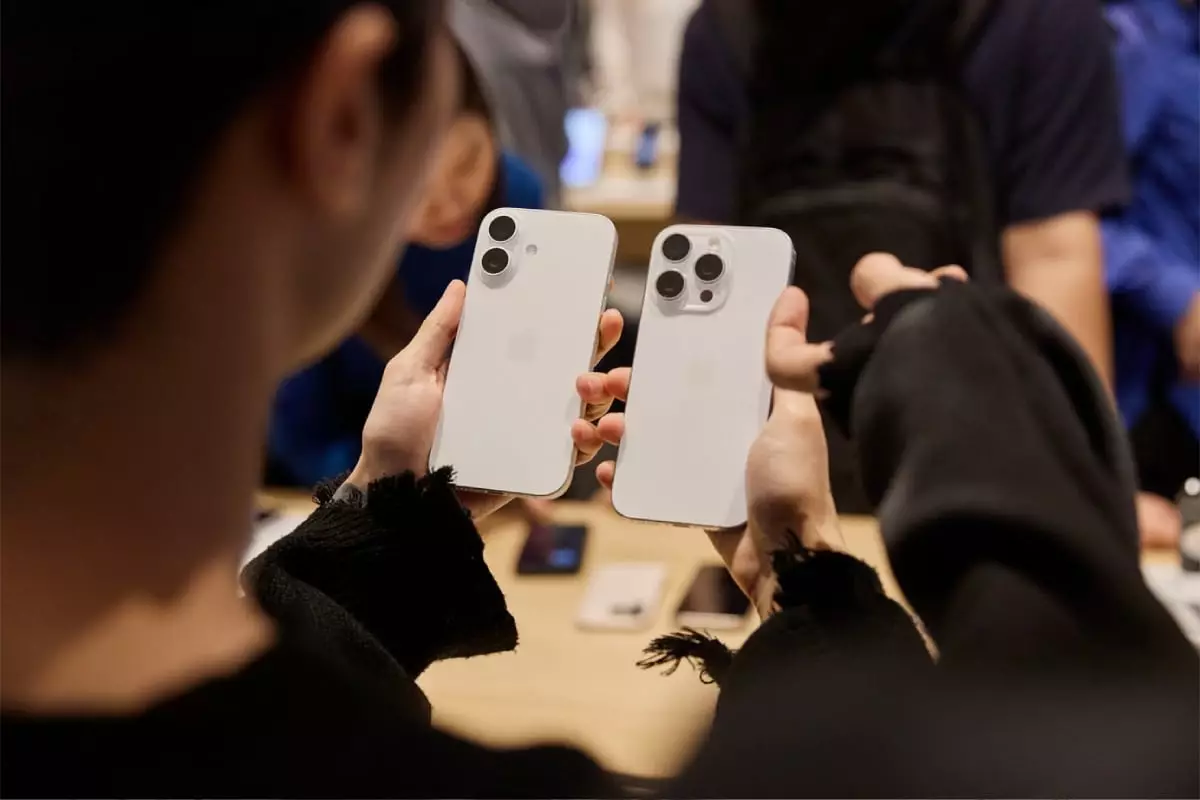In what can only be described as an opportunistic flash sale, Vijay Sales has stepped forward to announce its Apple Days Sale, offering a dazzling array of discounts on some of Apple’s most coveted products. Scheduled to commence on May 24 and wrapping up on June 1, this sale features a tantalizing selection of the latest iPhone 16 and 15 models, along with iPads, Apple Watches, and AirPods. While this must undoubtedly excite tech aficionados, it also prompts certain ethical dilemmas regarding consumerism and the accessibility of premium technology in today’s market.
For a retailer deeply entwined with the reputation of the products it sells, one can’t help but question the motive behind this seemingly magnanimous sale—are we truly receiving a fair deal, or merely witnessing a clever marketing strategy designed to drive up foot traffic through manufactured urgency? Apple has long positioned itself as a luxury brand, promising innovation and exclusivity, yet here is a retailer attempting to democratize access to these high-end products.
Discounts or Deceptive Pricing? Unraveling the Numbers
The striking discounts being offered, such as Rs. 4,000 off the iPhone 16 series for select bank card users, may initially seem appealing. For instance, a glance at the new pricing reveals the 128GB variant of the iPhone 16 reduced to Rs. 66,990 from Rs. 79,900. However, seasoned shoppers may find themselves skeptical, as these discounts can often obscure the reality of Apple’s original pricing strategies, which have often been criticized for being excessively inflated.
Moreover, the iPhone 16 Pro, now listed at Rs. 1,03,990—down from Rs. 1,19,900—raises eyebrows about the long-term value of these devices. Will this reduction create a rush among consumers, blinding them to the fact that they’re still investing significant amounts into a rapidly evolving tech landscape? For the true enthusiasts, this line of reasoning opens a broader discussion about inherent value versus perceived value in technology purchases.
Trade-In Tango: A Double-Edged Sword
Adding to the sales allure are the attractive trade-in bonuses of up to Rs. 7,500 for customers willing to exchange their old smartphones. While this is an attempt to enhance affordability, it is important to scrutinize how much value is genuinely being extracted. Consumers often overestimate the worth of their old devices, and the fine print may reveal restrictions that severely limit eligibility for the trade-in program. The balance between upgrading and merely chasing the next shiny object becomes precarious, reflecting a deeper issue in consumer priorities.
Having said that, the allure of a new iPad for Rs. 30,200 or the prospect of a MacBook Air at a discount should not distract from the homework one must do before committing to an upgrade. With products like the Apple Watch Series 10 now starting at Rs. 40,600, it starts to feel less like a genuine sale and more like a treadmill of incessant spending.
The Burden of Brand Loyalty: A Society Divided
Vijay Sales’ Apple Days Sale elicits an important yet often ignored conversation about consumerism, brand loyalty, and the societal implications of technology elitism. An iPhone or MacBook has long been a status symbol that divides society into those who can afford such luxuries and those who rely on older generation devices or, in many cases, remain entirely unconnected due to financial constraints. This sale can be seen as an attempt to bridge that gap; however, it risks further entrenching the idea that technology—and by extension, success—comes at a steep price.
It’s daunting to think of the psychological impact that comes with owning the latest gadget, especially when the need to belong in a hyper-competitive digital landscape becomes evident. This leads us to reconsider whether sales like Vijay Sales’ Apple Days serve the greater good or merely reinforce the elitist culture that has surrounded the tech industry for far too long.
The severity of this issue compels a radical rethink about consumer priorities, value, and societal norms surrounding technology. As we continue to engage with these products and sales, one must remain conscious of the deep-seated implications of our choices in a world increasingly riddled with disparities—economic and otherwise.


Leave a Reply